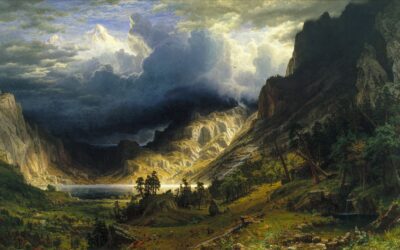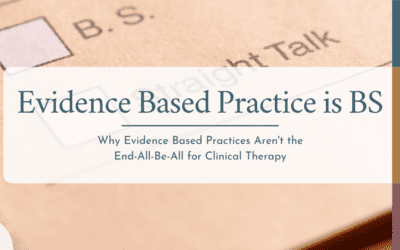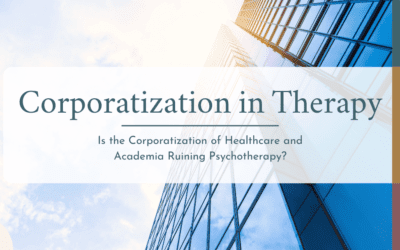8 Essential Tips for Therapists Starting a Private Practice
Starting a private practice as a therapist can be both exciting and challenging. Here are eight crucial insights to help you navigate this journey successfully.
1. Understand the True Value of Your Time
An hour of therapy involves more than just the session itself:
- Allocate time for monthly case reviews
- Conduct individual research on patients’ cases
- Stay prepared to spend extra hours reading about new treatment approaches
- Remember: This additional work is part of the “hour” you’re paid for in private practice
2. Be Flexible in Your Therapeutic Approach
- Recognize that no single model or approach works for every patient
- Be prepared to switch gears if a patient doesn’t respond well to your initial approach
- Adaptability is key to effective treatment
3. Commit to Continuous Learning
Stay current in your field:
- Subscribe to academic journals
- Invest in relevant books
- Listen to professional development podcasts during commutes
- Remember: A therapist who continually learns has an advantage over one who doesn’t
4. Invest in Quality Continuing Education Units (CEUs)
- Prioritize paid CEUs over free options
- Consider certifications like EMDR, Brainspotting, or Internal Family Systems (IFS)
- These investments can attract clients and improve your treatment effectiveness
- Bonus: CEUs are tax-deductible for your business
5. Set Up Your Business Structure Wisely
- Start your LLC as an S-Corp for tax benefits
- Open a separate business bank account
- Understand what expenses can be tax-sheltered (e.g., travel, equipment, consultation lunches)
- Consult with an accountant to navigate business setup and taxes
6. Choose Your Business Location Strategically
- Research occupational taxes in different areas
- Example: Birmingham charges 1% of gross income, while nearby Homewood charges nothing
- Consider using a PO Box in a tax-friendly area
7. Prioritize Personal Growth
- Recognize that your personal development impacts your effectiveness as a therapist
- Confront your own unconscious and disowned parts
- Engage in ongoing self-improvement for both personal and professional benefits
8. Embrace Failure as a Learning Opportunity
- Be prepared for occasional failures with patients
- Conduct exit interviews to gather feedback
- Analyze where you could improve, even when sessions seem successful
- Use these insights to continually enhance your practice
Starting a private practice requires more than just clinical skills. By considering these aspects of business, personal growth, and continuous learning, you’ll be better equipped to build a successful and fulfilling career as a private practice therapist.
Bibliography:
Yalom, Irvin D. The Gift of Therapy: An Open Letter to a New Generation of Therapists and Their Patients. Harper Perennial, 2017.
Kottler, Jeffrey A. On Being a Therapist. Jossey-Bass, 2010.
Norcross, John C., and James D. Guy Jr. Leaving It at the Office: A Guide to Psychotherapist Self-Care. Guilford Press, 2007.
Barnett, Jeffrey E., and Jeffrey Zimmerman. The Ethics of Private Practice: A Practical Guide for Mental Health Clinicians. Oxford University Press, 2019.
Cummings, Nicholos A., and William T. O’Donohue, editors. Practitioner’s Guide to Evidence-Based Psychotherapy. Springer, 2008.
Further Reading:
Goldfried, Marvin R., editor. Handbook of Psychotherapy Integration. Oxford University Press, 2005.
Macran, Sue, and William B. Stiles. “The Significance of the Therapist’s Personal Therapy for Therapists and Clients.” Psychotherapy, vol. 36, no. 3, 1999, pp. 281–284.
Skovholt, Thomas M., and Len Jennings. Master Therapists: Exploring Expertise in Therapy and Counseling. Allyn & Bacon, 2004.
Castonguay, Louis G., and Clara E. Hill, editors. Transformation in Psychotherapy: Corrective Experiences Across Cognitive Behavioral, Humanistic, and Psychodynamic Approaches. American Psychological Association, 2012.
Barkham, Michael, and Gillian E. Hardy. “The Evaluation of Psychological Therapies: Developing a Rigorous Approach.” Clinical Psychology & Psychotherapy, vol. 1, no. 1, 1994, pp. 3–14.
Lazarus, Arnold A. “Multimodal Therapy: Technical Eclecticism with Minimal Integration.” Handbook of Psychotherapy Integration, edited by Marvin R. Goldfried, Oxford University Press, 2005, pp. 231-263.
Leahy, Robert L. “roadblocks in Cognitive-Behavioral Therapy: Transforming Challenges into Opportunities for Change.” Cognitive and Behavioral Practice, vol. 10, no. 2, 2003, pp. 121-127.
Wampold, Bruce E., and Zac E. Imel. The Great Psychotherapy Debate: The Evidence for What Makes Psychotherapy Work. Routledge, 2015.







0 Comments